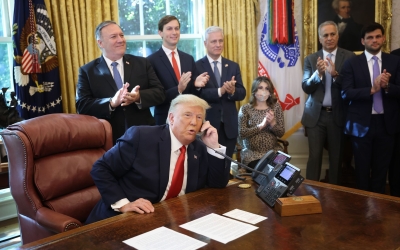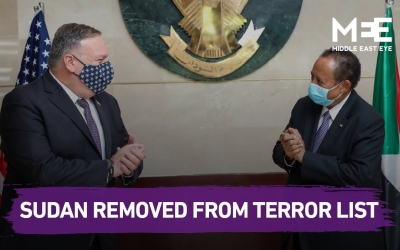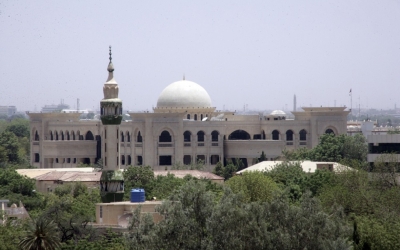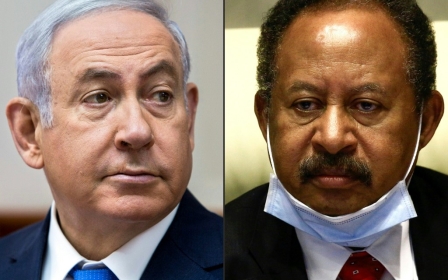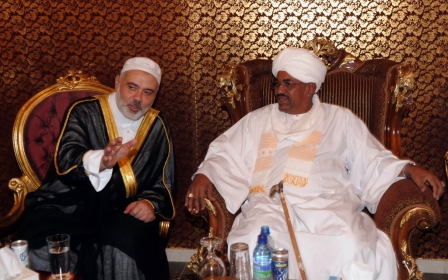Sudan to pull out of Israel deal if US fails to pass terror delisting: Report
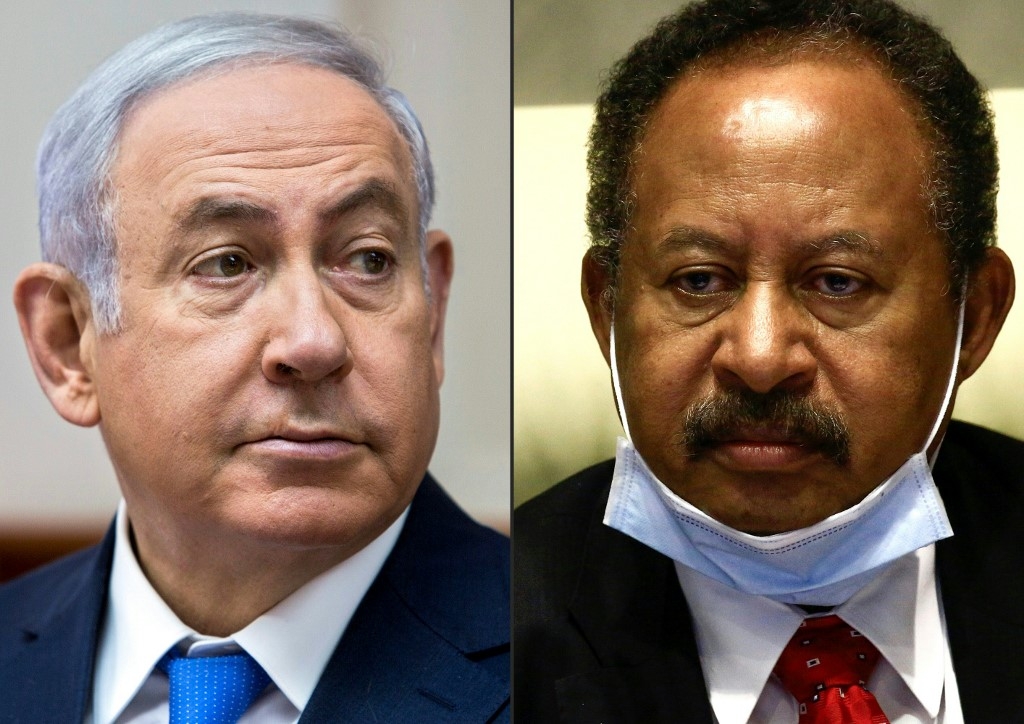
Sudan has threatened to pull out of its normalisation deal with Israel if the United States Congress does not remove the country from the State Department's State Sponsors of Terrorism (SST) list by the end of the year, according to reports.
At least five officials and other people familiar with the talks confirmed the condition to the New York Times, the newspaper reported on Tuesday.
Sudan announced its decision to normalise diplomatic ties with Israel late last month, on the heels of Washington's decision to remove Khartoum from the SST list.
The delisting has been set to be a major boost for Sudan's struggling economy and a pivotal step in its efforts to reintegrate into the international community after last year's uprising toppled longtime leader Omar al-Bashir.
Meanwhile, the normalisation of ties with Israel was seen as a foreign policy win for US President Donald Trump, whose administration in August secured similar deals with Bahrain and the United Arab Emirates.
New MEE newsletter: Jerusalem Dispatch
Sign up to get the latest insights and analysis on Israel-Palestine, alongside Turkey Unpacked and other MEE newsletters
End of December?
Now everything rests on Congress, as legislators need to approve Sudan's delisting, which would protect the North African country from several US-based terror-related lawsuits.
Sudan also needs to be removed from the SST list in order to do business with foreign investors. Currently, investors are reluctant to do business with Khartoum out of fear that they could end up financing potentially billions of dollars in compensation to terror victims.
But without such foreign investments, Sudan’s transitional government has little options in terms of pulling the country out of widespread poverty and instability. Sudanese negotiators have estimated that the country needs at least $2bn in funds to avert imminent economic collapse.
Secretary of State Mike Pompeo, who has led the efforts to bring Arab states into Israel's circle, met with Sudan’s de facto leader, Lieutenant General Abdel Fattah al-Burhan on Monday.
During the meeting Burhan made it clear that Sudan would not follow through with its plans to normalise ties with Israel before Congress passes the "legal peace legislation", the NYT reported.
A person familiar with the conversation told the newspaper that Pompeo assured Burhan that the immunity plan would be approved in the next several weeks.
The signing ceremony for the delisting is reportedly scheduled to take place with Sudanese officials at the White House in late December. But Congress has been deadlocked over the legislation, which essentially would block victims of past terror attacks from seeking compensation from Sudan outside of what has already been negotiated.
Terror lawsuits and Senate deadlock
Some of the US terror victims and their families will still receive compensation if the accord is cemented, as Sudan is locked into a $335m settlement agreed upon as a condition of its delisting.
The funds, which have been collected and held, are set to go to victims of the 1998 bombings against American embassies in Kenya and Tanzania. Both attacks were carried out by al-Qaeda forces with Sudan's assistance, resulting in the deaths of 224 people, including 12 US citizens.
Most of the money will go to victims who were American citizens at the time of the blast, as negotiated by the State Department. But other victims - nearly all of whom are Black, including those who have since become US citizens - will receive far less compensation, the NYT reported.
Some lawmakers have taken exception to the breakdown of the payout, seeking more funds.
Senator Robert Menendez, the top Democrat on the Foreign Relations Committee, has opposed the payment disparity for victims who were naturalised after the attacks.
Other lawsuits will likely be completely dropped, such as those related to the 9/11 attacks, which allege that Sudan is culpable for its sheltering of Osama Bin Laden in the 1990s. Democratic Senate leader Chuck Schumer has been working to preserve their claims, hoping to hold Sudan liable.
A person familiar with Sudan’s negotiating position called Schumer's attempts unacceptable, the NYT reported.
Still, the Senate is expected to pass a large military spending bill within the next two weeks and the delisting could be included in such legislation, according to a Senate official who is working to break the impasse, according to the newspaper.
Dealing with Israel
Sudan, which has never had relations with Israel, was hesitant to go through with the normalisation deal to begin with, as officials said such an agreement was outside of the transitional government's mandate.
In September, a senior member of Sudan's civilian government said linking the country's SST delisting with its Israel normalisation deal threatened the stability of Khartoum's newly designed government.
"Linking the lifting of Sudan from the terror list with Israel normalization is pure blackmailing," the official told the Washington Post at the time. "The US administration is potentially undermining the transitional government."
While Sudanese Prime Minister Abdalla Hamdok had said that the terrorism designation and normalisation with Israel should be viewed as two separate diplomatic processes, they seem to be very much linked.
Tel Aviv and Khartoum had not enjoyed official bilateral relations before this year's deal, although Israel has had close relations with South Sudan, which split from Sudan in 2011.
Shortly before he was removed from power, Bashir said he was advised to normalise ties with Israel, a request he rejected.
Middle East Eye delivers independent and unrivalled coverage and analysis of the Middle East, North Africa and beyond. To learn more about republishing this content and the associated fees, please fill out this form. More about MEE can be found here.


